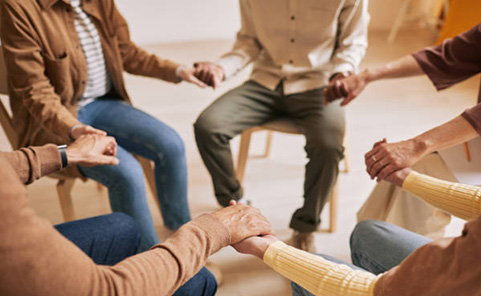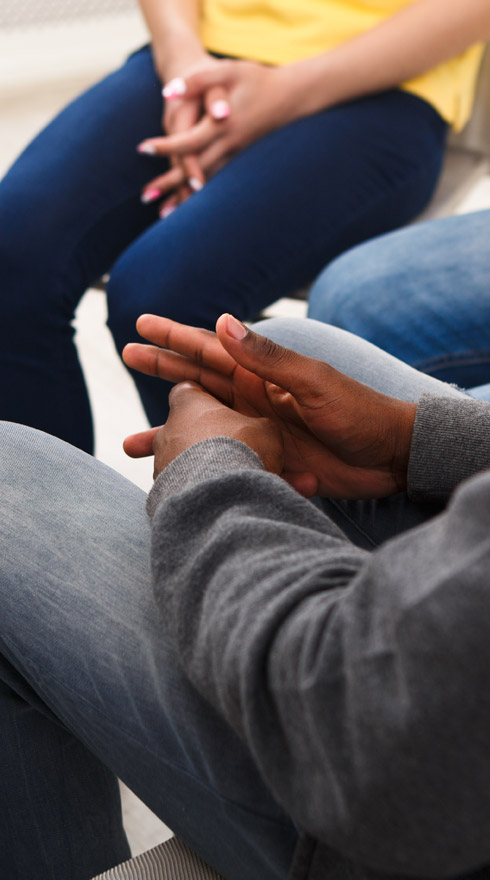If you or someone you care about is struggling with drug or alcohol dependence, it may seem like everything seems so hopeless and you’re unsure as to where to begin. You can treat addiction even though it is a disease, and long term recovery is possible through professional addiction treatment intervention strategies.
On this page, will address how integrating different rehabilitation approaches can encourage a sober future for you or a loved one.
What is Addiction Rehab (Rehabilitation)?
Addiction ‘rehabilitation’ is the process of medical care and psychotherapeutic interventions to tackle your dependency on substances such as recreational drugs, prescription drugs and alcohol. There is no ‘one size fits all’ approach to addiction rehab because it should be tailored to your requirements and may include detox, residential and outpatient programs, and extended aftercare programs.

Facts & Statistics about Addiction in Orange
Prevalence of Substance Use Disorder, by Drug Type
(IN THOUSANDS)
- 2,7578.5%Any Substance
- 2,0886.4%Alcohol
- 1,0683.3%Ilicit Drugs
- 2060.6%Pain Medication
Drug- and Alcohol-Induced Deaths by Age Group, California, 2016
- Alcohol-Induced
- Drug-Induced
- 18 to 250.5
- 9.6
- 26 to 354.3
- 13.9
- 36 to 6424.2
- 22.9
- 65+23.7
- 9.4
Drug Use, by Selected Type and Age Group California, 2015 to 2016
- 12 to 17
- 18 to 25
- 26+
- Marijuana*13.2%
- 34.0%
- 13.5%
- Misuse of Pain Medications3.5%
- 8.0%
- 4.3%
- Cocaine0.8%
- 7.2%
- 1.8%
- Heroin0%
- 0.4%
- 0.2%
What are the treatment options available in Orange?
By integrating treatment options, addiction specialists can work with you to isolate and treat the primary causes of your drug addictions. Even though treating the symptoms of dependence is crucial, you also need to build coping mechanisms to address the issues that lead to your dependency on alcohol or drugs.

Private Residential Programs
Residential addiction rehab programs require you to stay at the treatment center and take part in your treatments on-site. One of the biggest benefits is access to ongoing treatment and addiction specialists.
If you leave your home and move into a rehab facility, you can free yourself from exposure to stressors that influenced your decision to abuse substances or alcohol. When you stay in a safe and supportive environment you can protect yourself from relapse and have a better chance of finishing your treatment program. Residential rehab programs are useful for those with strong alcohol or drug dependencies, co-occurring disorders or dual diagnosis.
Enrolling in a residential rehab program is an effective way to treat addiction, and sustaining it requires continued focus because maintaining recovery is hard during the early stages. When your inpatient program is complete you will want to be more independent and your focus will be on the things you want to do with your new life.
Do You Need Help?
Our addiction advisers are here to help you.

Sober Living Programs
Support and guidance are key to a sober living program to help you control your future goals more effectively. Sober living programs typically include:
- Guidance throughout the day from a house manager
- Developing boundaries for positive recovery behavior
- Nurturing important relationships with other people who may be going through the same types of issues
Outpatient Programs
Outpatient programs are easy to adjust to so that you can maintain any family/work obligations and still undergo treatments, by attending the rehab center regularly.
Outpatient programs usually offer:
- Education focusing on drug or alcohol abuse
- Counseling and talking therapies through group interventions and one-to-one sessions with a trained addiction therapist. – Outpatient programs should run from a few months to more than a year, and your personal needs will determine the length of treatment.
Detox Only Programs
Taking part in a detoxification program is a vital step in rehab as it helps address your physical dependency by removing substances from your body. As your body gets used to functioning without the substance in your system, you typically experience withdrawal symptoms.
This process of detoxification starts the recovery process, which is ongoing as you challenge the underlining reasons for your addictive behavior so that you can avoid repeating these negative patterns in the future. You may experience some cravings and withdrawal symptoms for a few weeks after your drug or alcohol detox program has ended. You can reduce the risk of relapse by building coping skills for long-term recovery success.
Paying for Private Treatment
If you opt for private options, you can pay for your treatment yourself or claim through your healthcare insurance. Many health insurance companies will contribute to some of the costs of a rehab program, which could help with a detox, rehab program and aftercare provisions. The amount of cover offered by your policy is set by your provider and the terms of your policy.
We recommend that you determine the amount you can claim on your policy before enrolling in a rehab program. By visiting our Verify Your Insurance page – https://www.unitedrecoveryca.com/verify-your-insurance/, you can learn what cover you can claim for.
Clients will have to pay for the cost of rehab if they do not claim from their insurance provider. Many treatment centers provide payment plans to clients who may find paying upfront for treatment a challenge.
State Funded Programs
State-funded treatment programs are useful for people who have alcoholism or substance addictions and who may not have the resources to afford private rehab. Through Medicaid and state budget funding, these programs can kickstart your recovery with:
- Medical detox
- Rehab treatment and relapse prevention services.
If you are not covered by private health insurance or you do not have access to funds, you can apply for a state-funded rehab program. You can expect to provide:
- Supporting Evidence that you are a resident of the US
- Proof of earnings
- Proof of where you live
- Medical details about your drug or alcohol addiction issues
You can discover more about the application process by visiting https://www.grants.gov/
To find the contact details for your state agency, this document provides the necessary details – https://www.samhsa.gov/sites/default/files/single-state-agencies-directory-08232019.pdf

The following state-funded addiction rehab programs are available in Orange:
Just One Recovery
262 and 264 North Cleveland Street, Orange, CA 92866
714-538-8085
https://www.justonerecovery.com/Twin Town Treatment Centers Twin Town Orange
705 West La Veta Avenue, Suite 208 , Orange, CA 92868
714-532-9295
https://twintowntreatmentcenters.com/Chapman House Inc
1412 East Chapman Avenue, Orange, CA 92866
714-288-9779
https://www.chapmanrehab.com/
Maintaining Addiction Recovery in Orange
When you leave the rehab center, you may find it challenging. At rehab you were in a professionally supported, safe environment. Your coping skills will be put to the test when you leave rehab, as you may experience some challenges that you still need to learn to deal with. Clients who had severe dependencies find long term recovery more difficult when they leave rehab if they do not have a social support structure. If you don’t have aftercare support or guidance in the initial stages of recovery, relapse can occur.
The following AA/NA meetings are available in Orange:
Newcomer Meeting
Open, Discussion and Topic: Christ Lutheran Church – Orange
2715 East La Veta Avenue, Orange, 92869
Sunday: 7:30 pm – 9:00 pm
https://orangecountyna.org/ocwp/meetings/Monday Night Mix Up
Open and Discussion:
2715 East La Veta, Orange, 92869
Monday: 7:00 pm – 8:30 pm
https://orangecountyna.org/ocwp/meetings/AA - All About Me Newcomers Mens Stag
Open, Men and Newcomer:
1310 East Walnut Avenue, Orange, CA, 92856
Thursday: 7:30 pm – 8:30 pm
https://alcoholicsanonymous.com/
Aftercare & Alumni Programs
Aftercare programs extend your rehab program once you return to your daily life. Relapse rates can be as high as 60%, and because life can be unpredictable, aftercare support is an important service to support your recovery in the long-term. When you approach finishing your treatment program, you may consider which services will be beneficial for your long term recovery. We can develop an aftercare package that protects you. Individuals who complete their rehab programs can join an alumni community program such as ours, which provides you the opportunity to engage with peers and staff.
You will have access to special events and receive guidance and encouragement from individuals who are in recovery long-term. Plus, you have the opportunity to offer reciprocal support if you want to.

Support Groups (Fellowship Meetings)
Support groups enable long-term recovery because they understand the paramount role that social structures play in maintaining addiction recovery. You can get long-term recovery support if you join groups like Narcotics Anonymous or Alcoholics Anonymous go to their 12-step meetings. At support group meetings, you will share and learn from other people’s journeys in recovery. Companionship, empowerment and taking responsibility for our actions are key to long-term recovery, and meetings provide many with the necessary tools to stay sober.
Support for Families & Children Affected by Addiction in Orange County
Some people in an addicted household are affected more than other individuals. Support is just as necessary for all family members as it is for the individual with the dependency. Family support groups provide you and your loved ones with important coping lessons for your own life and help you to offer more support to the loved one who has the issues with substance dependence. Some useful support groups for families include:
- Parents of Addicted Loved Ones
- SMART Recovery Family & Friends
- NAMI Family Support Groups
- Al-Anon
- Families Anonymous
- Alateen
- Nar-Anon










